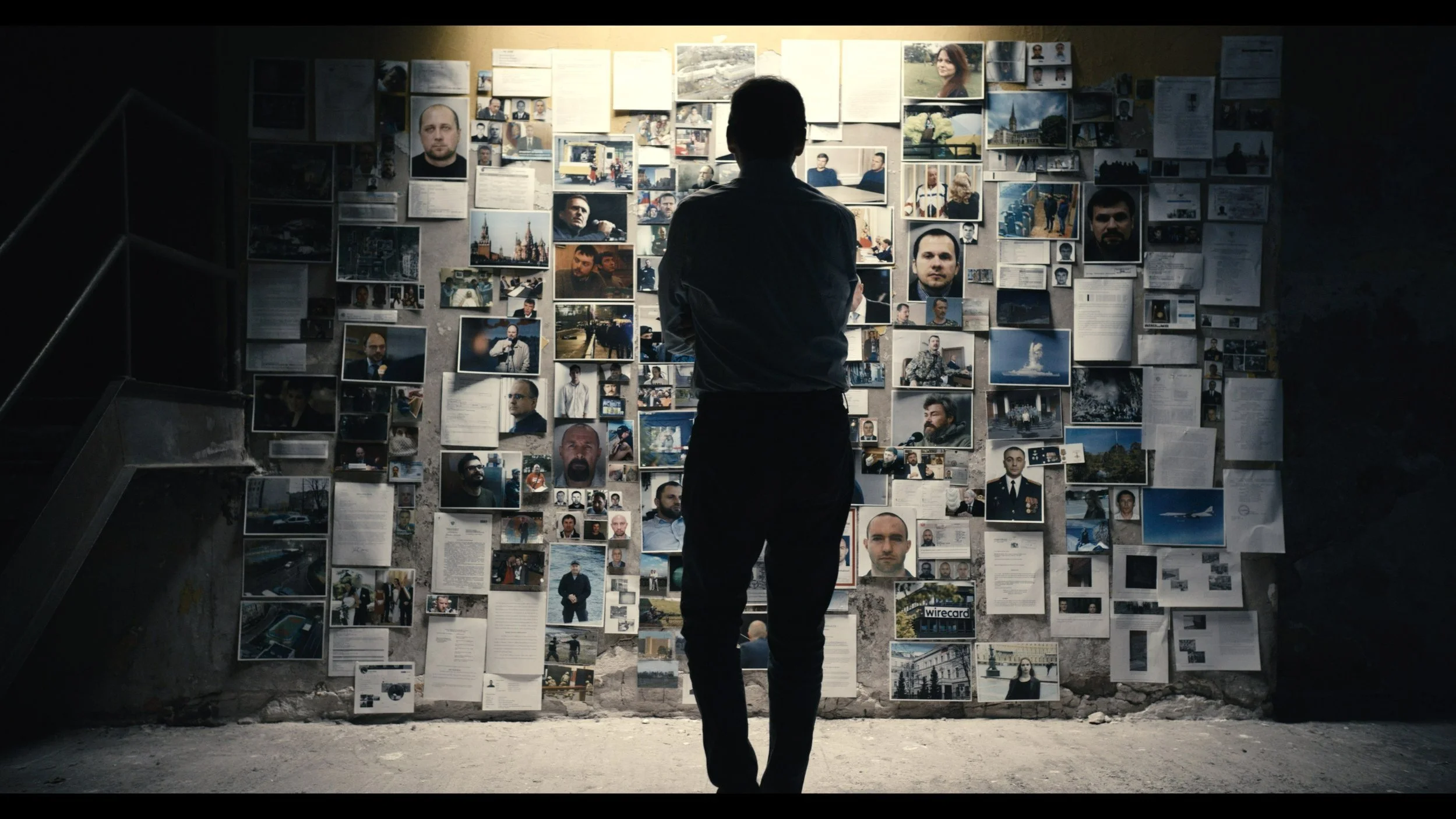Antidote
The documentarian James Jones explores Vladimir Putin's war against the Russian opposition.
Image courtesy of Dogwoof Releasing.
This is a striking example of a film in which the importance of its subject matter is far more important than its quality. Filmed in the main in 2022 and 2023, Antidote brings home to viewers the extent to which spies and assassins acting on behalf of Russia function in a network that extends far beyond that country's borders. Press and television coverage have made us familiar with the intimidation of Putin's opponents, including poisoning attempts and actual assassinations and, indeed, Antidote receives its UK release within days of a trial at London's Old Bailey in which three Bulgarians have been found guilty of spying for Russia. But, informative though they are, news reports don't bring the situation alive in the way that a documentary film can by bringing the viewer face to face at some length with people who in one way or another have found themselves the victims of this kind of persecution. Antidote does exactly that and thus counts as necessary viewing.
The man behind this venture is the established documentarian James Jones whose work has mainly been for television but who is no stranger to winning awards. But in this instance handling the subject matter is far from easy because the range of the material makes it difficult to fuse together its various component parts in a wholly satisfying way. The fact that Antidote contains two passing references to the heroic Alexei Navalny reminds one of the 2022 documentary by Daniel Roher: Navalny was a far more outstanding example of documentary film craft but being focused on one man it was a much easier film to shape. In contrast, Jones is giving us a documentary which, albeit within the context of the work done by the investigative journalistic group known as Bellingcat, seeks to spotlight three individual cases. One of these concerns an anonymous Russian whistleblower who explains how, when employed in chemical experiments for the military, he was horrified to discover that the work included unofficial secret research projects involving Novichok which would be used for assassinations. The second figure is the Russian opposition leader Vladimir Kara-Murza who, after surviving two attempts to poison him, was tried for treason and sentenced to twenty-five years in a correctional colony. Ironically, the third figure – one at the very centre of this film – is the Bulgarian investigator Christo Grozev himself a co-founder of Bellingcat who was usually involved in protecting and helping those thus threatened but who would then find himself in their shoes having been put on a wanted list.
Everything that needs to be covered here is of interest but intercutting between the various threads is frequently less than ideal. In particular the early scenes mainly feature the anonymous whistleblower and Grozev’s part in seeking to get him out of Russia but he is then dropped until much later in the film. His return appearance provides an even more effective episode yet, coming so much later on and interrupting the film’s two major narratives, it initially feels out of place. Grozev’s own situation proves increasingly compelling as it reveals the pressures that his situation imposes on his wife and daughter in Vienna and particularly on his father who was also living there. Nevertheless, it is odd that the film should have opened with a telephone conversation between father and son, the latter in New York confirming that it is too dangerous for him to return to Austria. This is in January 2023 but the film soon goes back to earlier events until about a quarter of the way through this opening sequence is seen again now in its chronological place.
What does help the film to fit together is the fact that it largely adopts the viewpoint of the investigative journalists so that Grozev’s own comments are heard alongside those of his collaborators Fidelius Schmid and Roman Dobrokhotov. Nevertheless, when it comes to telling the story of Vladimir Kara-Murza the film turns to his wife Evgenia, a deeply impressive woman who recalls the failed attempts to poison her husband before we get more details about his arrest and trial. However, in the meantime Grozev has been developing a theory about the man who may have been a key figure in his own persecution – this being Jan Marsalek whose history now needs to be sketched in. Again, this is interesting but it adds to the sense that one is being pulled from one narrative to another. Nor does it help to provide any real sense of flow when at intervals throughout we keep returning to the same undated set-up in which Christo Grozev is seen talking direct to the camera.
While feeling that the structure leaves much to be desired, I have no easy answer to the problem it poses – it might or might not have helped to have some overarching commentary and it might or might not have been possible to tell each of the main tales individually in turn. However, if as it stands Antidote strikes me as a rather clumsy film structurally, it is my job as a critic to point that out even though it may seem like quibbling. It certainly does not prevent me from going on to assert that everybody would do well to seek out this film so as to share in these personal narratives detailing actions taken in heroic and dangerous defiance of Putin to the great credit of those whom we meet in this film.
MANSEL STIMPSON
Featuring Christo Grozev, Evgenia Kara-Murza, Fidelius Schmid, Roman Dobrokhotov, Eliot Higgins, Matt Cole, Christian Grozev.
Dir James Jones, Pro James Jones and David Moulton, Ph Edgar Dubrovskiy and Jean-Louis Schuller, Ed Rupert Houseman, Music Uno Helmersson.
Impact Partners/Channel 4/Passion Pictures/Bellingcat Productions-Dogwoof Releasing.
89 mins. UK/USA/Netherlands. 2024. UK Rel: 14 March 2025. No Cert.


